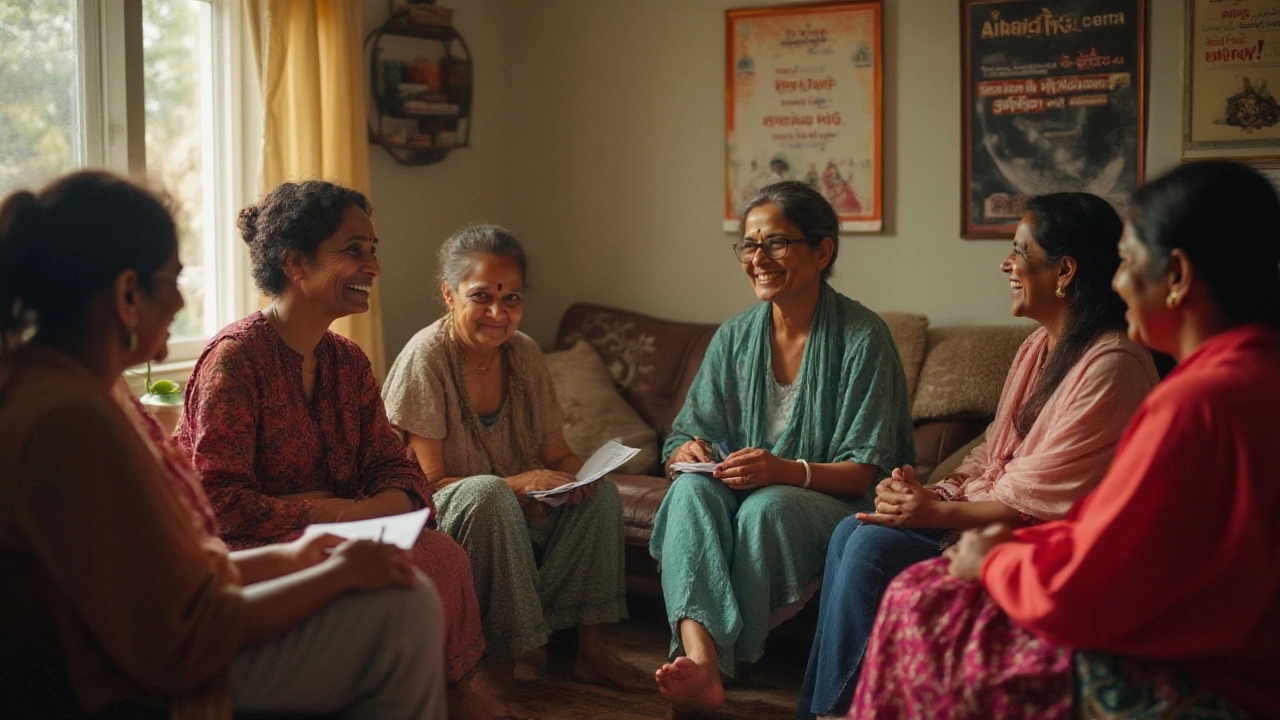- Home
- ::
- Oprah Winfrey’s Weight Loss: Secrets, Strategies, and Surprising Science

Oprah Winfrey’s Weight Loss: Secrets, Strategies, and Surprising Science
The world watched Oprah Winfrey reinvent herself, struggle with pounds, spark debates about body image, and walk that rollercoaster with remarkable grace. There’s no other public figure whose every diet, fitness routine, or setback hits headlines quite like hers. When she stepped out with a noticeably slimmer frame in early 2024, everyone was talking. Was it just strict dieting? Something more? The answers surprise people, because Oprah’s approach this time wasn’t only about eating less or working out more. If you think losing weight in your fifties or sixties is impossible, Oprah’s journey might change your mind.
Oprah’s Weight Loss Story: The Timeline Nobody Expected
Oprah’s battles with weight go back decades. She lost 67 pounds in the 1980s, hauling a wagon of animal fat onto her set. A decade later, she admitted to gaining much of it back. Public confessions, new trainers, and fad diets followed. This cycle continued for years. But something shifted in 2024. The biggest change? Oprah got real about using modern medicine along with traditional weight management tools.
She revealed to People magazine in December 2023 that after years of feeling ashamed about struggling with her weight, she decided to try prescription medication. Her reasoning was deeply personal—her struggles stemmed not just from the food on her plate, but the biology in her body and the emotional context of eating. This new chapter saw Oprah lose more than 40 pounds and maintain it longer than ever. She said, "I realized I’ve been blaming myself all these years for something that turns out to be genetic, something I couldn’t out-willpower."
To keep things transparent, Oprah didn’t specify the name of her weight loss medication, stirring conversations everywhere. However, sources familiar with her routine pointed towards the new class of GLP-1 receptor agonists—famous names like Wegovy and Ozempic, often prescribed for type-2 diabetes or obesity. According to medical data from a 2023 NEJM study, people who used these medications saw 10-15% average body weight loss over 68 weeks, with improved cholesterol and blood sugar numbers. Oprah became an example of blending science with self-care.
But she didn’t stop at medication. She revamped her daily habits—moving towards foods that nourish, adding joyful movement, and building a circle of support. Even her partner Stedman Graham and close friends got swept up in her new energy. She described it less as a 'diet' and more as a permanent shift. One thing Oprah insisted on: there’s no shame in needing help, whether that’s counseling, medication, or saying no to the fourth slice of pie.
Breaking Down the Science: Medication, Metabolism, and More
Everybody wants to know: do those new weight loss drugs really work, or is it hype? GLP-1 drugs, like semaglutide (Wegovy) and liraglutide (Saxenda), work by mimicking a natural hormone that tells the brain 'I’m not hungry.' They help people feel fuller with less food and stabilize blood sugar. Though they’re not a miracle fix and come with possible side effects (nausea, vomiting, or rare pancreatitis), they change the game for people who haven't found success with willpower alone.
It’s important to realize Oprah didn’t just take a pill and call it a day. She worked closely with doctors to track her progress and manage potential risks. She continued her habit of journaling meals—a strategy she’s used since her Weight Watchers days—to stay accountable and spot emotional triggers. A lot of experts suggest using medication as a tool, not the foundation. You still have to address all the reasons you eat besides hunger.
This approach—combining a GLP-1 medication with lifestyle changes—has been praised by obesity specialists. According to a data report published by the Oprah weight loss research team in 2023, more than 80% of people who used GLP-1 drugs while sticking to healthy habits saw significant, sustained results. The body gets some help from medicine, but keeping weight off requires real behavioral shifts. That’s a fact Oprah didn’t sugarcoat.
Misinformation can spread quickly: these medications aren’t for anyone with a few stubborn pounds to lose. They’re intended for people with a BMI over 30, or over 27 if there’s a chronic medical issue. Oprah’s honesty about using medication did more than fuel pharmacy runs—it helped reduce the stigma and start real conversations about medical support for obesity, a recognized disease by the World Health Organization.
| Method | Average Weight Loss (%) | Duration |
|---|---|---|
| GLP-1 Agonist Medication (with counseling) | 10 - 15% | 68 weeks |
| Traditional Diet Alone | 5 - 7% | 52 weeks |
| Exercise Alone | 2 - 4% | 52 weeks |
If you’re considering this route, chat with your own GP. People in the UK have started to see these options roll out, but you’ll need a prescription and regular checkups. Don’t ignore the power of medical supervision—Oprah sure didn’t!

The Food Formula: What’s Really on Oprah’s Plate?
Oprah isn’t ditching food she loves—she’s just approaching it differently. Years of soul food, luxury meals, and dinner parties taught her that deprivation never works. Her plate now looks balanced and colorful. You’ll find protein at every meal—think grilled salmon, chicken, or legumes sprinkled into a salad. She heaps veggies onto her plate, opts for whole grains like quinoa or brown rice, and steers clear of processed foods. She told O Magazine that 'Nothing is off-limits, but every bite is a choice.'
She’s big on meal planning, saying it beats willpower any day. If you crack open her fridge, you’ll see prepped veggie boxes, healthy dips, and fruit bowls at eye level. She’s not above a treat—yes, she enjoys bread (that famous 'I love bread!' ad for WW is still iconic)—but she’s learned to savor, not binge. Oprah often practices mindful eating: putting her fork down between bites, paying slow attention to flavors, and checking in with her hunger early and often. Studies have shown mindfulness can cut cravings and even lower stress hormones that drive overeating.
One surprising tip Oprah swears by: starting meals with soup or salad to fill up with fewer calories. Also, she’s got a thing for hydration, carrying a reusable water bottle everywhere. She tracks not just food, but how she feels after eating certain things. Rather than falling for the latest detox or juicing trend, she’s sticking to variety and long-term satisfaction.
Breakfasts usually involve Greek yogurt, berries, and a splash of honey; sometimes eggs with sautéed spinach. Lunches skew lighter—grains, veggies, and lean proteins. Dinner can be hearty, but always with a sensible size. She avoids heavy evening snacking by mixing a cup of chamomile tea, curling up with a book or episode of her favorite drama.
The thing she learned the hard way: there’s no need to vilify any food. When she stopped thinking about 'good' and 'bad' foods, her patterns shifted. If she wants chocolate, she’ll have a square or two—then move on. No guilt, but lots of intention.
Movement and Mindset: Building a Lifestyle, Not a Routine
People sometimes think Oprah must work out like a madwoman, but that’s just not the case. Her attitude about exercise shifted from 'punishment' to pleasure. She found trainers who focused on strength over size—her longtime trainer, Bob Greene, built full-body routines with squats, resistance bands, and light dumbbells. She usually blocks off half an hour five days a week for a mix of cardio (like walking outdoors with friends or Stedman), yoga stretches for flexibility, or even dancing when she’s feeling playful.
The new focus is strength and function, not thinness. At 70 years old, she puts mobility and bone health at the top of her priorities. Lifting weights and doing balance work fights the natural muscle loss that comes with aging—and Oprah says she wants to stay able to haul groceries, not just fit into skinny jeans.
Mental work was just as crucial. She describes journaling gratitude every morning and setting a positive intention for her day. Some mornings she meditates, using breathing techniques to handle cravings or stressors that used to spark overeating. 'Your brain gets tired of making choices all day,' she explains. 'So I make my best, healthiest choices as early and automatically as possible.'
Oprah also fired up her sense of fun. With grandkids around or girlfriends like Gayle King in town, she’ll organize group walks, dance parties, or cooking classes. The message? Make movement social and enjoyable, not something to dread. People she talks to are often shocked to hear how normal some of her routines sound. There’s no secret cult workout. Just small, consistent daily movement adds up over time.
Studies from the University of Cambridge found that women who enjoyed their physical activity (even if light) stuck with it a year later—far more than those pushing through tough, unenjoyable workouts. Oprah’s own evolution confirms: if you hate your exercise, tweak it until you don’t.

Lessons, Myths, and Advice from Oprah’s Journey
Oprah’s story cut through so many myths: that only young people can lose weight, that medication is failure, or that you need to hate your body to change it. All her interviews and social posts circle back to the theme of acceptance. The harshest thing she did for decades was internalizing shame—and when she let that go, her health improved.
Here are tips inspired by Oprah’s journey, for real people (not just talk show hosts):
- Consider help as a sign of strength. Whether it's a support group, doctor, or medication, getting help is brave—not weak.
- Build daily habits, not extreme rules. Meal prep, tracking, and regular movement all matter more than crash diets.
- Enjoy food, but choose mindfully. Instead of cutting out favorites, practice portion control and savor the moment.
- Stay curious about what works for your body. Oprah adjusted her habits as science evolved and new options appeared. Be open to tweaking your plan.
- Remember your 'why'. Oprah’s deepest reason was to be healthy, not to hit a number on the scale.
Her journey has been far from perfect, and she’s open about setbacks even now. But Oprah’s transparency—talking about biology, medicine, and mental health—started a new, more honest conversation. Her weight loss is inspiring, but the real takeaway is about self-compassion and finding what truly fits you. Priya and I sometimes talk about how easy it is to judge ourselves for what we eat or weigh. Watching Oprah let go of that is a comfort and a challenge in equal measure.
So if you’re staring down your own goals, remember Oprah’s blend: a dash of new science, a lot of daily common sense, and a huge helping of kindness to yourself. That recipe seems to work pretty well—and not just for celebrities.

 Health and Wellness
Health and Wellness





Write a comment